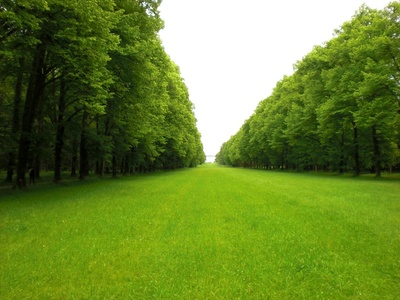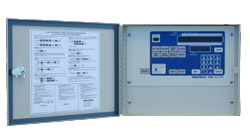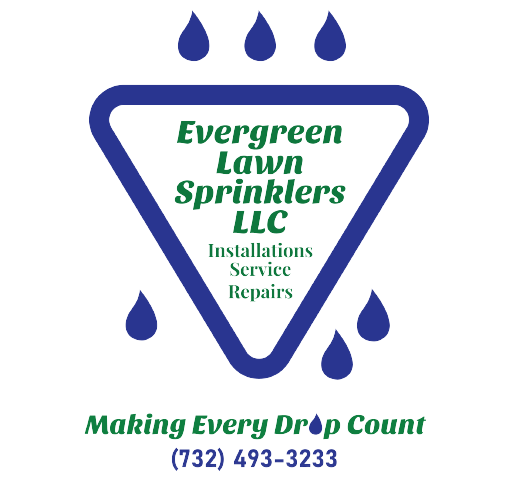FAQ's
Evergreen Lawn Sprinklers LLC prides itself on being professional and responsive to your irrigation needs.
1. What will installation of a sprinkler system do for my lawn?
A: Property designed sprinkler system will apply water for a predetermined amount of time
at an even application rate. All too often hand watering results in over watering some areas and
under watering other areas. Another benefit of a sprinkler system is its ability to water your lawn
when you are out of town or you don’t have the time.
2. How long will take to install a sprinkler system?
A: An average size property should take from one to two days. A large estate home can take
from three days to one week. A very large commercial system can take months, or even years to
complete.
3. Will the installation damaged my lawn?
A: Evergreen Lawn Sprinklers uses techniques that make installation less disruptive than it was in the
past. We feature trenchless pipe installation on most projects by using a machine that slices
the sod, and lays the pipe at the same time. The sod is then laid back down back to its original
position. Usually, within two weeks you won’t be able to see any signs of our pipe routes.

4. What type of maintenance will my sprinkler system need?
A: All systems should be turned on in the springtime and be winterized at the end of the
season. We recommend that you contact our company in both situations. We can provide you
with the finest full checkup before the season starts and winterize your system at the end of
season to protect the pipes from freeze damage.
5. What kind of products do you use?
A: Evergreen Lawn Sprinklers is using the best products in the industry like: Toro, Irritrol, Rain Bird, Hunter, and Netafim drip tubing. If you have a product you specifically want, we can get it just for you.
6. Do the sprinklers run when it rains?
A: No, Evergreen Lawn Sprinklers will install a rain sensor. This device senses rainfall, and will automatically shut down the system when significant rainfall occurs.
7. What is drip irrigation, and what will it do for my landscaping?
A: Drip irrigation is a method where small amounts of water are placed on the root ball of plants, therefore using the water more efficiently. This is done with a network of small tubes that provides water to many plants at once. A drip zone will usually run for several hours. It is generally considered to be better for most planting beds than typical watering, and it wastes almost no water.
A: Each lawn has different sun and soil conditions, therefore, requiring varying amounts of water. It is better to water deep and infrequently rather than lightly every day. Other factors include the type of sprinklers used, direct sun, shade, soil conditions, slope, and temperature. Generally its best to water as much at once as possible without creating run-off, then waiting as long as possible before watering again.
A. A "good" lawn sprinkler system is one flexible enough for your watering needs; it will
put the right amount of water in each area, and it will keep operating year after year with
minimal maintenance. Your satisfaction with your system will depend ultimately on three
things:
(1) The quality of the components,
(2) The design of the system, and
(3) The craftsmanship of its installation.
Today's components are engineered and manufactured to give you years of trouble-free service.

A. Yes the State of NJ requires all Irrigation Contractors to hold a valid License/ Certification.
"Certified landscape irrigation contractor" means a person engaged in the construction, repair, maintenance, improvement, and/or alteration of any portion of a landscape irrigation system who has successfully completed the requirements for certification and has a valid current certificate pursuant to N.J.S.A. 45:5AA-4 et seq. and 45:5AA-5a et seq. and this chapter."
11. Will the system be custom-fitted to my property?
A. The design of your system will take into account such factors as changes in terrain elevation, sunny and shaded areas, and the landscape planting in place or planned. These factors are important in determining sprinkler placement, zoning, your watering schedule and the length of watering times.
12. How do you determine what water pressure to use in the design of my system?
A. Piping hydraulics to insure the proper operation of your sprinklers must be based on correct determination of the available water pressure. Evergreen Lawn Sprinklers will take into account your planned watering schedule and any projected changes in water pressure in your neighborhood. On larger properties, Evergreen may recommend increasing the size of the water meter. The cost of installing a larger meter may be offset by savings on extra valves and piping. If the governing utility in your area will not permit you to install a larger meter, your system can be designed with the existing meter.
13. Will your design and equipment help me save water?
A. Your system will use the most efficient type of sprinklers and nozzles available to put just the right amount of water where it is needed. Your watering schedule will also be planned to minimize waste caused by runoff, wind drift and evaporation.
14. How deep should the pipe be laid? What kind of pipe will be used? Will it be laid in trenches or "pulled" into the ground?
A. Lateral piping should be as deep as the height of an assembled sprinkler head, fitting and nipple 8 to 10 inches. Main-line pipes should be 12 to 14 inches deep. Excessive depth makes repairs difficult, while extremely shallow installation may interfere with turf maintenance and result in damage to pipes or wiring.
15. What do you do to avoid damaging existing landscaping?
A. Evergreen Lawn Sprinklers LLC can design a system that won't require moving existing plants. It may require some hand excavation. If your property is not yet landscaped, the installer will work closely with your landscaper.
16. Which is better, a manual or an automatic system?
A. Most residential lawn sprinkler systems are now installed with an automatic control so that your lawn and landscaping will stay healthy and green whether you're home or away. Except for very small areas, the difference in cost is usually insignificant.
17. Is the controller easy to read and program? Is it flexible enough to handle my watering needs without being overly complicated?
A. Lawn sprinkler controllers are designed for easy operation, flexible watering schedules, and long, trouble-free operation. You have a choice of electro-mechanics or the latest in microcomputer technology. Evergreen Lawn Sprinklers can demonstrate both types of controllers for you and recommend the unit which can best accommodate your system requirements and budget.
18. Will I be able to set the controller to comply with water rationing regulations if necessary?
A. During water shortages you may be restricted to watering on certain days and during low-demand hours--usually at night. Your Weather-matic controller can be set to conform to these restrictions, including watering while you sleep.
19. Where should I put the controller? Is it weatherproof?
A. Your controller can be located wherever installation and operation are convenient. Normally that would be in your garage. However, Evergreen Lawn Sprinklers LLC has models approved for outdoor installation if desired. Of course, the installation will be in accordance with local electrical codes and utilizing a non-switched circuit connection.
 20. Are the remote-control valves reliable?
20. Are the remote-control valves reliable?
A. The remote-control valves are the "heart" of your automatic system. Responding to commands from the controller, each valve will open and close more than 100 times during an average watering season. Weather-matic valves feature the finest plastics and corrosion-resistant metal components to insure that they work for you day after day, week after week, year after year. Although Weather-matic valves are all designed for direct
burial, your installer will recommend the use of valve-burial boxes for ease of location and access to special valve features such as flow control and manual open and close.
21. What kind of wire will be used for the remote control valves? How are the connections made?
A. Since the valves operate on a safe low voltage, local electrical codes normally do not apply to their wiring. However, a minimum of 18-gauge, single strand, underground burial wire is recommended. AU valve wiring connections must be waterproofed. Ask your contractor to show you samples of waing and waterproof connectors which they will use.
22. Can my system have an automatic override that keeps it from watering unnecessarily when there is enough rain? A. Yes. A Rain Sensor must be installed according to NJ Law for all systems installed after September 8, 2000, click here to learn more. The program you set in the controller is not disturbed, and your system will begin watering again on schedule when additional water is required.
23. Q. What about the after-the-sale service?
A. Evergreen Lawn Sprinklers LLC has trained service people and access to an inventory of the parts necessary for prompt service. You will probably want to ask about the benefits of pre-scheduled maintenance.
24. Q. Isn't there a possibility of freeze damage to my system?
A. YES. Evergreen Lawn Sprinklers LLC will recommend having the system blown out with compressed air for winterization. Control wiring is not damaged by freezing temperatures.
25. Will my system be warranted? Who backs up the warranty?
A. All components are warranted by Evergreen Lawn Sprinklers LLC. Evergreen Lawn Sprinklers LLC can advise you about warranties on the pipe, fittings, and wiring, and about warranty service labor.
26. Can I get the names of other customers who have had their systems for more than a year?
A. Evergreen Lawn Sprinklers LLC will be proud to give you local references. The best are from customers who have used their systems for at least one season, because it may take several month of use before problems owing to inferior components, improper design or faulty installation become evident.

 p Count
p Count